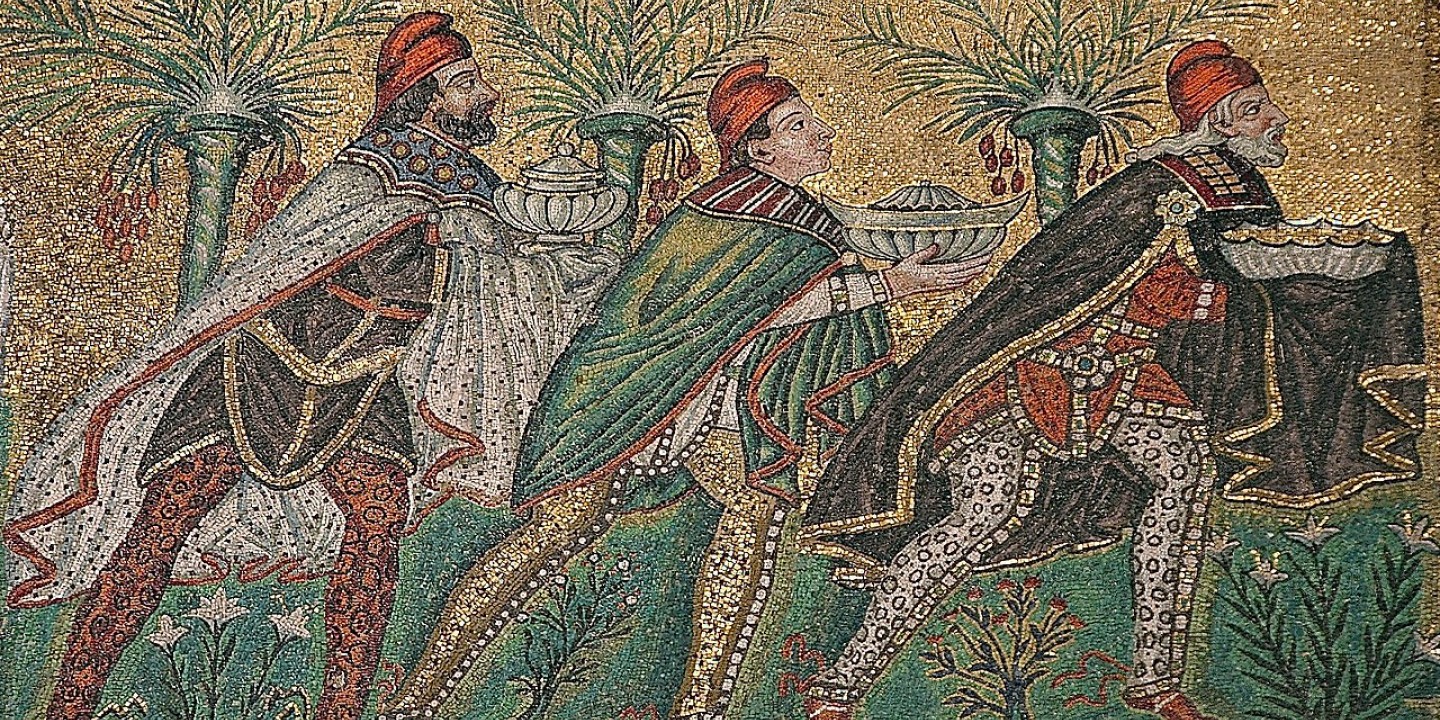Joy is for Epiphany, too
From the wise men to the wedding at Cana, joy comes from recognizing and affirming the good.

Everybody knows that Christmas is a season of joy. For one, it has at its heart a birth story. A new and healthy child came into the world, and his family rejoiced. Every birth is a new beginning, a fresh hope. Christmas joy overlaps with the most common of humanity’s great joys.
We tend not to associate joy with Epiphany. In Epiphany, Christians remember the visit that the sages from the East made to Bethlehem to honor the newborn Jesus, an act of gentile recognition of Christ’s divinity and mission (Matt. 2:1–12). In this season we also commemorate the first miracle Jesus performed—at the wedding in Cana of Galilee, when Jesus revealed his glory and his disciples believed in him (John 2:1–11). Each of these seemingly unrelated events highlights a crucial aspect of joy.
Read our latest issue or browse back issues.
In searching for “the child who has been born king of the Jews,” the sages from the East first came to Jerusalem. Herod the king sensed a threat to his rule. At the advice of experts in holy books, he told the visitors to go to Bethlehem; the prophet Isaiah had foretold that the great ruler, the righteous shepherd of Israel, would come from there. When they arrived, they “were overwhelmed with joy.” On entering the house “they saw the child with Mary his mother, and they knelt down and paid him homage” (Matt. 2:11). When they disobeyed Herod’s request to return to Jerusalem to disclose the location of the child, Herod fell into murderous rage and massacred all the children in and around Bethlehem.
The source of the sages’ joy and the source of Herod’s fury was one and the same: the child born to be the king. As Herod saw it, the child spelled the end of Herod’s rule, and so he was filled with fear and rage. As the sages saw it, the child was to bring salvation both to the Jews and to the world, and they were filled with hope and joy.
We rejoice when something good happens to us or to those who matter to us, but we can be mistaken in our response. We can interpret as good something that is in fact evil, and we can interpret as bad something that is in fact good. We may falsely rejoice over evil things and mistakenly rage over good things. For true joy, two things are needed: the object must be good and the good object must appear to us as good. Joy is a fruit of truthful seeing of genuine goods.
This is the Epiphany’s first lesson about joy: to rejoice in the coming of Christ, it’s not enough for Christ to have been born; we must also perceive him as savior and king. Otherwise we won’t rejoice but will treat him with fear, disdain, or indifference.
At the wedding in Cana of Galilee, the hosts discovered that, by some omission in planning or an embarrassing lack of resources, they had run out of wine. Mary approached Jesus for help, and he seemed at first to rebuff her: it was not his problem and not his hour, the hour of his self-manifestation. Still, he performed the miracle, and the wine he made out of water was not only abundant but better than the wine that was first served. The rejoicing could continue. The steward, not knowing of the predicament or of the miracle that solved it, wondered about the wisdom of serving excellent wine to guests who, having “become drunk,” wouldn’t be able fully to appreciate the quality; he was concerned that the hosts had missed an opportunity to show themselves as possessors and connoisseurs of great wine. Jesus was interested in helping joy last.
Christ has come to bring joy not only by turning darkness into light, conquering powers of evil, and establishing the reign of justice. He has also come to bring joy by turning water into wine, by overcoming what we lack, and helping sustain and enhance the goods we already enjoy. The goal of Christ’s first miracle, the first sign of his divine glory on earth, was the nonutilitarian goal of prolonging rejoicing. The joy of the resulting celebration was a testimony to a reality more basic than lives twisted by sins committed and endured. The goodness of creation—its continuation in Adam and Eve coming together and opening up the world to the experience of new generations—is more basic than the reality of sin and evil. Joy is an echo of that original and abiding goodness in our souls.
A version of this article appears in the January 3 print edition under the title “Seeing goodness.” The author is a scholar at the Yale Center for Faith and Culture, which sponsors the Theology of Joy and the Good Life, a project supported by a grant from the John Templeton Foundation.






